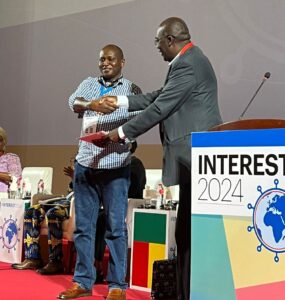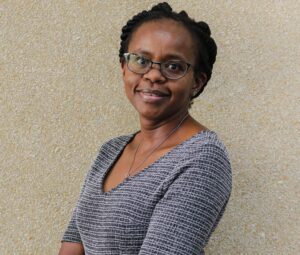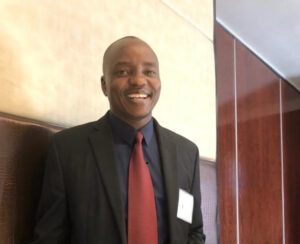In this Q & A, we talk to CARTA graduate Jepchichir Kiplagat where she shares in detail her current research interests, her experience of carrying out research and teaching amidst the pandemic.
Tell us about your current research interests: What questions/problems are you exploring? What are some of the findings that your work has revealed?
I am working in the area of HIV and aging and currently identifying areas of health systems strengthening to meet the needs of older adults living with HIV. Following my PhD work, interviews and focus group discussions with older adults identified several challenges faced when seeking HIV care as an older person. Among them was the high pill burden, the visits to multiple care providers to seek care for multiple conditions a patient is suffering from, To mitigate against some of the challenges, I am asking the following question – how can the healthcare system be modified to meet the needs of the aging HIV populations? The needs we are specifically focusing on are the increased risk of comorbidities and age-related conditions.
As a researcher, how did you overcome practical issues such as contact, communication, connectivity? What are the solutions relating to carrying out CPE during the Covid-19 pandemic?
The COVID-19 pandemic has affected all cycles of life, researchers ones not excluded. While virtual meetings – conference calls and zoom meetings have made things manageable, the face-to-face meetings that cement trust in collaboration has been weakened. As part of continuous professional development, I applied and was accepted to an Implementation Sciences training of 2020 hosted by GACD. This is a 2-week training normally held in person. However, in the 2020 class, we held it virtually. There were challenges with this type of training as groups of 5 people were able to network and no more about each other, and limited networking and interaction with other groups. Various reunion meetings have been held thereafter to keep people connected alongside opening a LinkedIn group for people to share ideas and have discussions. While the internet and access to computers to communicate has not been an issue to me, there are times persons that are looking out to connect do not themselves have access to these key requirements for online/virtual communication.
What are the greatest lessons you have drawn as a researcher and are there any opportunities you have seen emerge from the pandemic?
During the pandemic, I had an opportunity to work with a team from all over the globe on a book focusing on HIV and aging in Africa. I led a team of three in developing a book chapter that is currently under review in Springer. I noted that while there was limited time working from home (as a result of competing priorities – parenting and caregiving and accomplishing formal work), using little time to engage in the activities that promote my research career is key to remaining active in research.
What’s next for your career? What issues are you going to focus on in your upcoming research projects?
I am currently a research Fogarty Fellow with the Northern Pacific Global Health consortium program http://fogartyfellows.org/. Through this fellowship, I am conducting research and will be assessing the feasibility and acceptability of integrating hypertension and diabetes care and management into the HIV care platform. We are doing this with the hypothesis that older adults will have better engagement in care when HIV and other comorbidities care is integrated and ultimately better health outcomes for older adults living with HIV. If the data from this project shows that it is feasible and acceptable to integrate care, then my next steps will be to do an implementation science research on measuring the quality of life among older adults living with HIV with the hope of identifying ways of measuring a 4th 90 in the UNAIDS 90-90-90 targets for HIV.
Kiplagat is a Cohort Five Graduate from Moi University, Kenya.
This article is part of our #CARTA100 series as we celebrate surpassing 100 CARTA graduates.




